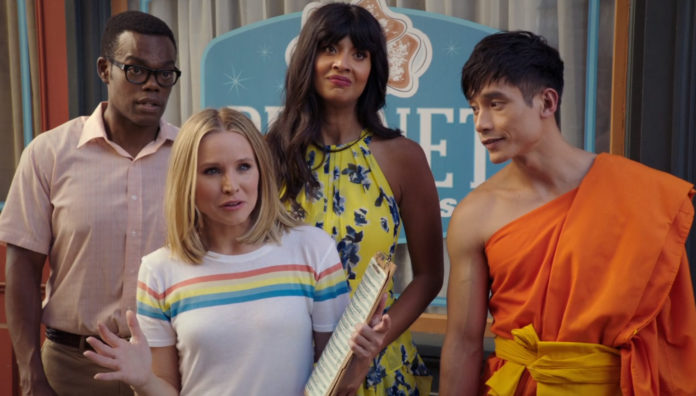If you had told us that one of the best shows on NBC in 2020 would be a sitcom about moral philosophy, we would probably have thought you were pulling our leg. But, as the popular show is coming to an end, let’s talk about the lessons we got from it.
As Chidi often reminds us: no one likes a moral philosophy professor. And yet here we are, awaiting season four, eager to resume Chidi’s lessons in ethics and find out what happens to the four most individually annoying but collectively wonderful characters imagination can think up.
Although The Good Place brushes over questions of religion and lightly plays with a bizarre notion of God, it takes moral ethics entirely seriously. In fact, what we end up hoping for the characters is not that the characters will receive their traditional “happy ending,” but that they will succeed in becoming better people. That’s ultimately what the show is about. And while yes, we are rooting for the characters to make it into The Good Place, the show is far more focused on moral behavior and life on Earth.
In Chidi’s lessons, he lays down the law for two core principals of ethics. The first is a deontological system, which swears by actions being good or bad in themselves. This is the ethical system that Chidi himself subscribes to, which means he believes in doing the right thing, regardless of the consequences.
In college philosophy classes, teachers like to play out scenarios where lying – which is deontologically wrong – may be the best thing to do in a given situation. In The Good Place, the scenario is one where Chidi is surrounded by demons and must go undercover to save his friends. And that’s where entertainment meets education.
The second system of ethics Chidi focuses on is utilitarianism – the belief that the right action is the one that causes the greatest good for the greatest number of individuals.
A typical moral philosophy professor response to this system is the trolley problem. Do you allow a trolley to run over five people or do you pull a lever to divert the trolley and kill one person?
In season two, Michael plays out the problem for real and Chidi ends up with blood and guts all over his face when he delays making a decision. In this way, the series reminds us that thinking about moral philosophy is never the same as actually acting it out.
The Good Place explores many different angles of moral philosophy, but it does not give away any answers. As the series progresses, it demonstrates more and more how being a good person is a complicated affair. Furthermore, it’s only when we realize the characters have moral flaws that we are able to fully relate to them.
Ultimately, The Good Place is not about life after death, but about living our lives on Earth to the best of our ability. And that’s why it’s the best moral philosophy sitcom on NBC.











